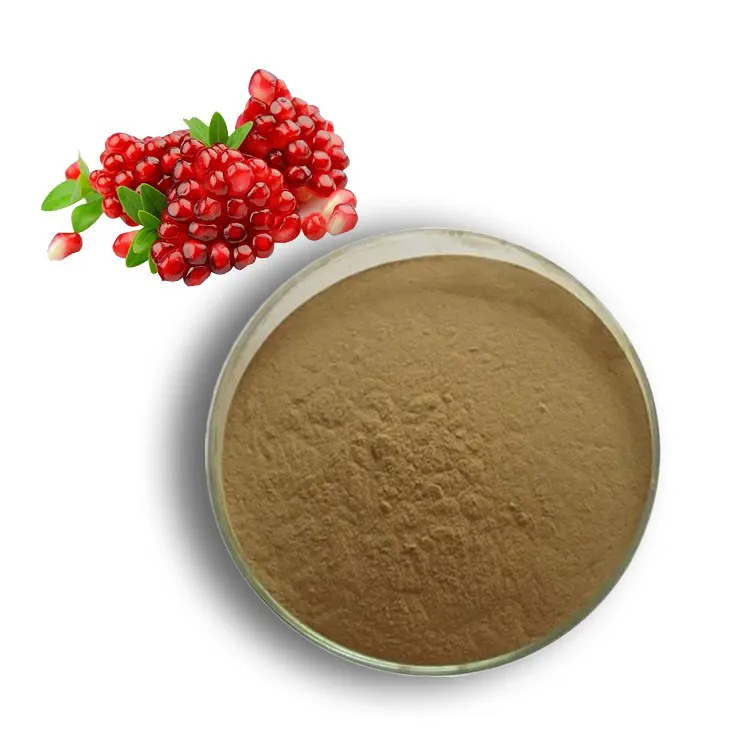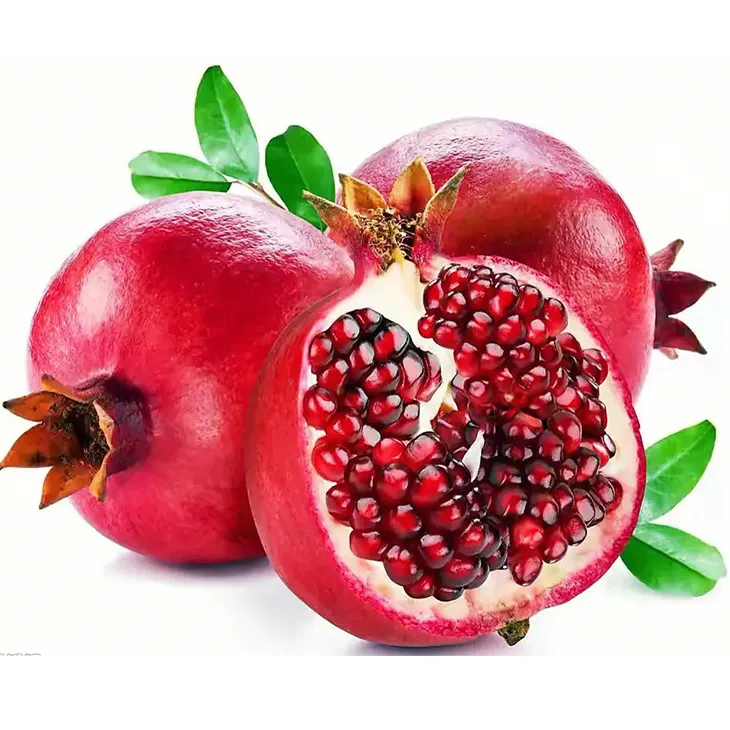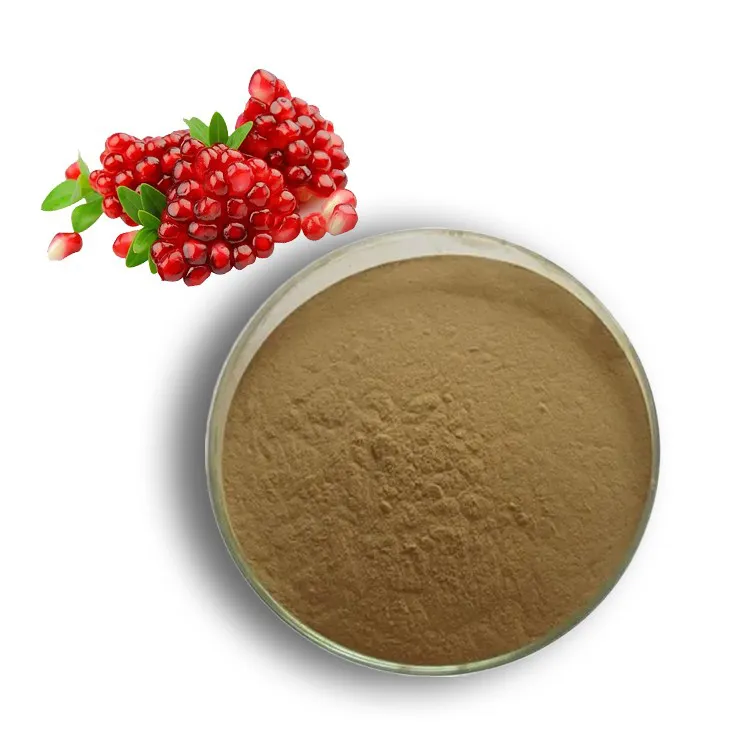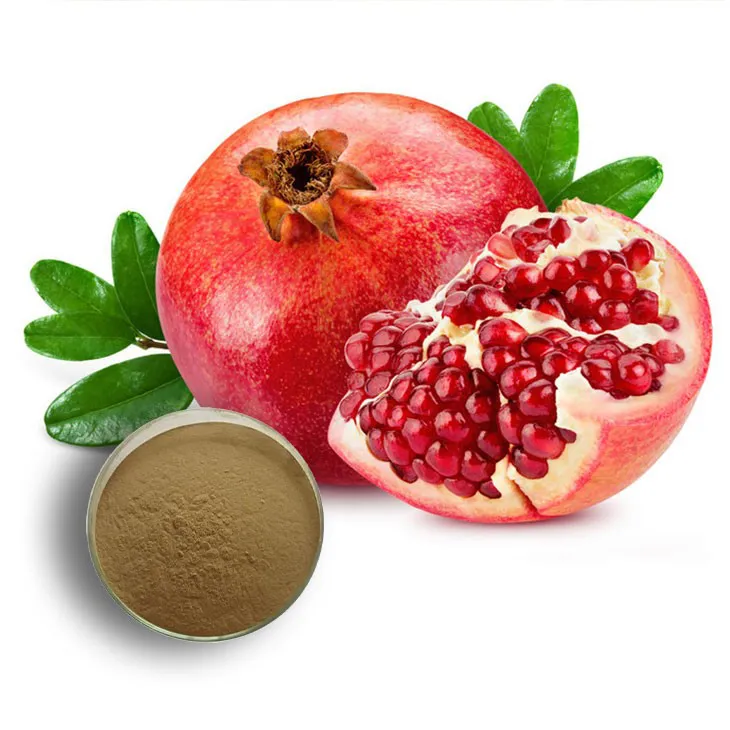- 0086-571-85302990
- sales@greenskybio.com
Organic Pomegranate Extract of Trace Components
2024-11-29

1. Introduction
Organic Pomegranate Extract, which contains trace components, is emerging as a multi - faceted wonder. It has been attracting increasing attention in various fields, including nutrition, medicine, and environmental protection. The trace components within this extract are what make it so special and valuable.

2. Trace Components in Organic Pomegranate Extract
The trace elements within the organic Pomegranate Extract play a crucial role. These include vitamins, minerals, and phytochemicals.
2.1 Vitamins
One of the important vitamins found in the extract is vitamin C. Vitamin C is essential for immune function and skin health. It helps in the production of white blood cells, which are the body's defense against infections. Moreover, it is involved in collagen synthesis, which is important for maintaining the elasticity and integrity of the skin. Other vitamins may also be present in smaller amounts, contributing to the overall nutritional value of the extract.
2.2 Minerals
Various minerals are also part of the trace components in pomegranate extract. These minerals can play different roles in the body. For example, potassium may be involved in maintaining proper heart function and fluid balance. Minerals are important for a wide range of physiological processes, and their presence in the pomegranate extract adds to its potential health benefits.
2.3 Phytochemicals
Phytochemicals such as ellagic acid are significant components. Ellagic acid has been studied for its anti - carcinogenic properties. It is believed to work by inhibiting the growth of cancer cells and preventing DNA damage. Other phytochemicals in the pomegranate extract may also have antioxidant, anti - inflammatory, or other beneficial properties.

3. Dietary Significance
In the dietary context, organic pomegranate extract offers a natural way to supplement the diet with beneficial substances.
3.1 Nutritional Supplementation
As mentioned before, the presence of vitamins, minerals, and phytochemicals makes it a valuable addition to the diet. It can help fill in the gaps in nutrient intake, especially for those who may not be getting enough of these components from their regular diet. For instance, people who have a limited intake of fruits and vegetables can benefit from consuming pomegranate extract as a source of essential nutrients.
3.2 Immune Support
With the vitamin C content and other immune - enhancing components, the extract can support the immune system. A strong immune system is crucial for preventing infections and diseases. Regular consumption of pomegranate extract may help in reducing the frequency and severity of illnesses.
3.3 Skin Health Improvement
The nutrients in the extract, particularly vitamin C, can contribute to better skin health. It can help in reducing wrinkles, improving skin texture, and giving the skin a more youthful appearance. Additionally, the antioxidant properties of the phytochemicals can protect the skin from damage caused by free radicals, which are associated with premature aging.

4. Environmental Protection Potential
In the field of environmental protection, the organic pomegranate extract can potentially be used in biodegradable materials due to its natural origin.
4.1 Biodegradable Materials
The extract can be incorporated into biodegradable polymers. These polymers can then be used to make various products such as packaging materials. Since the pomegranate extract is natural, it is more environmentally friendly compared to synthetic additives. When these biodegradable materials break down, they release the pomegranate extract components in a more sustainable way, without causing long - term environmental pollution like some non - biodegradable plastics.
4.2 Green Chemistry Applications
The use of pomegranate extract in environmental applications also aligns with the principles of green chemistry. Green chemistry aims to design chemical products and processes that reduce or eliminate the use and generation of hazardous substances. By using pomegranate extract in biodegradable materials, we are moving towards more sustainable and eco - friendly solutions.

5. Traditional and Modern Medicinal Uses
In the area of traditional medicine, organic pomegranate extract has been used for centuries for various ailments.
5.1 Traditional Medicinal Use
Traditional healers have used pomegranate extract to treat digestive problems, such as indigestion and diarrhea. It was also believed to have a role in promoting blood circulation and relieving pain. These traditional uses have been passed down through generations and are now being re - explored in the context of modern medicine.
5.2 Modern Research on Medicinal Effects
Modern research is now delving deeper into understanding how the trace components work together to provide these medicinal effects. For example, in treating digestive disorders, the phytochemicals may have anti - inflammatory effects on the digestive tract, while the vitamins and minerals may support the overall function of the digestive system. In terms of enhancing overall well - being, the antioxidant and immune - enhancing properties of the extract may play a role in reducing the risk of chronic diseases and improving general health.
6. Conclusion
Organic pomegranate extract with its trace components is a remarkable substance with a wide range of potential applications. From its dietary benefits to its environmental protection potential and medicinal uses, it offers a great deal of value. Continued research is needed to fully understand and optimize the use of this extract, but it is clear that it has a promising future in multiple fields.
FAQ:
What are the important trace components in organic pomegranate extract?
Important trace components in organic pomegranate extract include vitamins (such as vitamin C), minerals, and phytochemicals (such as ellagic acid).
How does the vitamin C in organic pomegranate extract benefit health?
The vitamin C in organic pomegranate extract is essential for immune function, helping the body defend against diseases, and is also beneficial for skin health, contributing to a healthy complexion and potentially aiding in wound healing.
What are the potential applications of organic pomegranate extract in environmental protection?
Since it is of natural origin, organic pomegranate extract can potentially be used in biodegradable materials in the field of environmental protection.
How has organic pomegranate extract been used in traditional medicine?
Organic pomegranate extract has been used for centuries in traditional medicine for treating various ailments, though the exact mechanisms were not fully understood at that time.
How do the trace components in organic pomegranate extract work together for medicinal effects?
Modern research is currently exploring how the trace components in organic pomegranate extract work together. For example, in treating digestive disorders or enhancing overall well - being, the combination of vitamins, minerals, and phytochemicals may interact in complex ways to produce these effects.
Related literature
- The Trace Components of Organic Pomegranate Extract: A Comprehensive Analysis"
- "Beneficial Effects of Organic Pomegranate Extract Trace Components on Health"
- "Organic Pomegranate Extract: Trace Components and Their Environmental Applications"
- ▶ Hesperidin
- ▶ citrus bioflavonoids
- ▶ plant extract
- ▶ lycopene
- ▶ Diosmin
- ▶ Grape seed extract
- ▶ Sea buckthorn Juice Powder
- ▶ Beetroot powder
- ▶ Hops Extract
- ▶ Artichoke Extract
- ▶ Reishi mushroom extract
- ▶ Astaxanthin
- ▶ Green Tea Extract
- ▶ Curcumin Extract
- ▶ Horse Chestnut Extract
- ▶ Other Problems
- ▶ Boswellia Serrata Extract
- ▶ Resveratrol Extract
- ▶ Marigold Extract
- ▶ Grape Leaf Extract
- ▶ blog3
- ▶ blog4
-
Manufacturers of Euphrasia Extract.
2024-11-29
-
Chinese peppermint oil powder factories.
2024-11-29
-
The best green tea extract on the market.
2024-11-29
-
Nature's Bounty Okra Extract.
2024-11-29
-
Chinese Oyster Peptide Powder Factories.
2024-11-29
-
The best organic L - carnitine.
2024-11-29
-
Plantain extract
2024-11-29
-
White mustard seed extract
2024-11-29
-
Nettle leaf extract
2024-11-29
-
Acerola Extract
2024-11-29
-
Licorice Root Extract Powder
2024-11-29
-
Polygonum multiflorum extract
2024-11-29
-
Genistein
2024-11-29
-
Sophora Flavescens Root Extract
2024-11-29
-
Tongkat Ali Extract
2024-11-29
-
Alfalfa Meal
2024-11-29





















